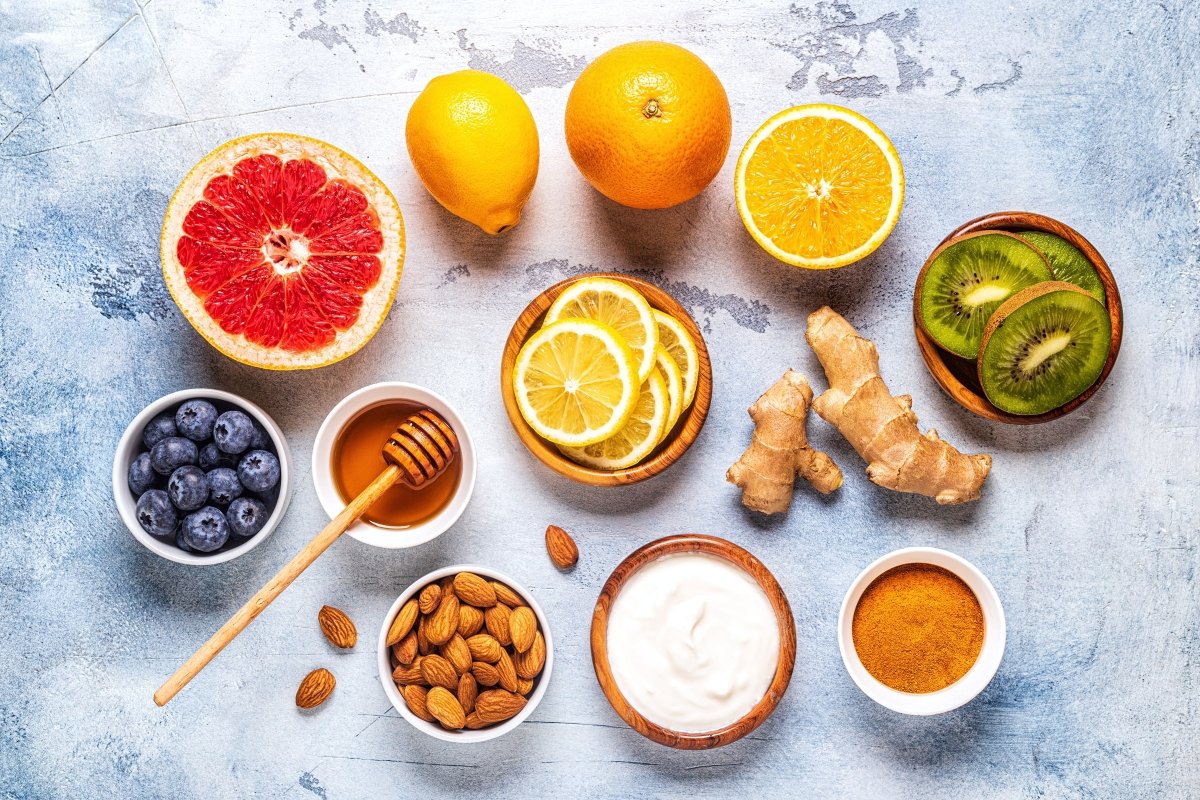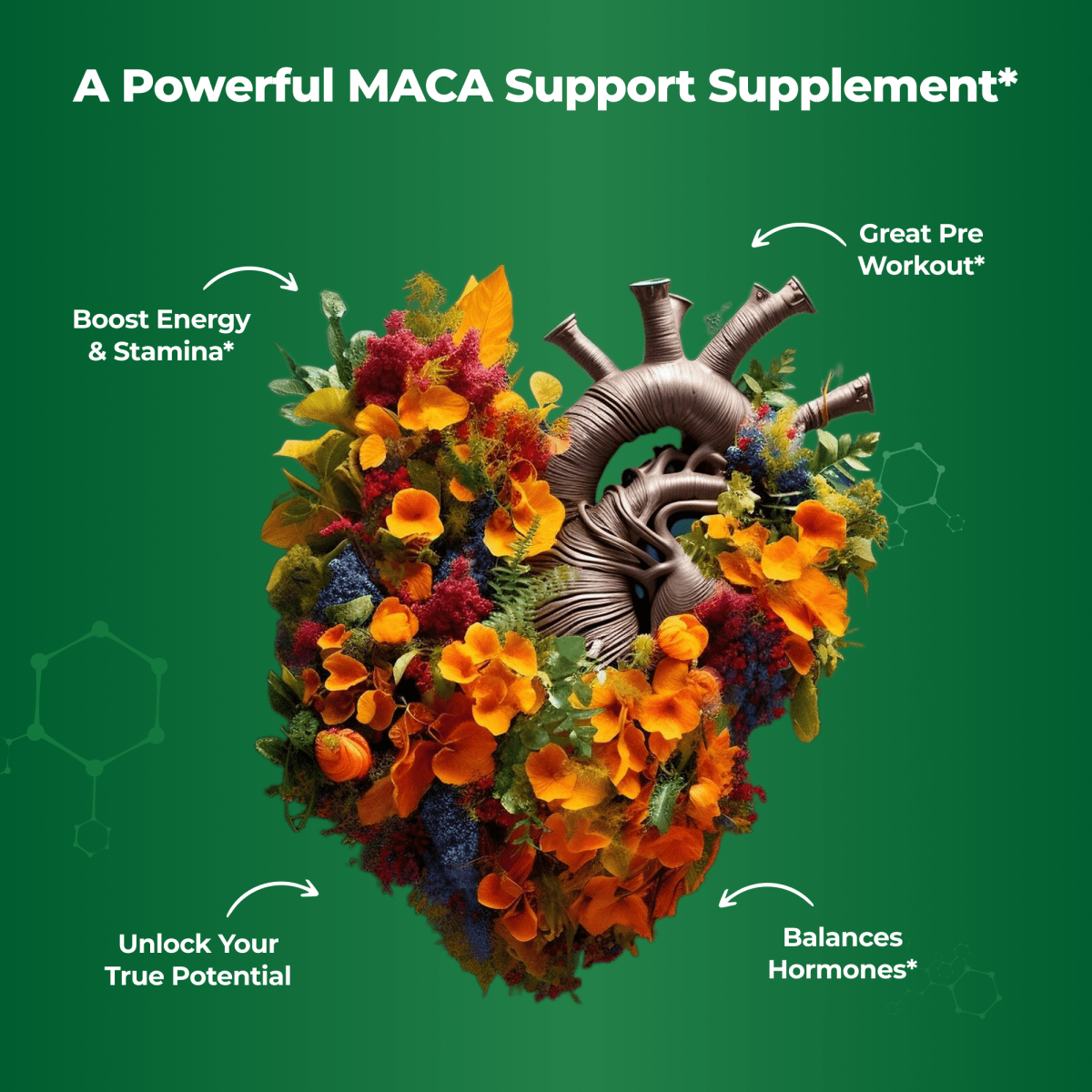
Your immune system’s job is to defend your body against infection. When your immune system is healthy, it has an easier time combatting the onslaught of germs that you encounter daily. If your immune system isn’t healthy, you’ll find that you get sick more often and, when you do get sick, it’ll be for much longer periods.
As you can imagine – keeping your immune system in working order is essential. You want to give your immune system all the resources it needs to defend your body. This means ensuring your body is in good condition, getting the right nutrients into your system, and keeping up to date with your vaccinations. Do this, and you’ll be healthier.
But how do you give your immune system that boost? What should you be doing? What should you be eating? Well, we’re going to answer all those questions, plus a few more, here. We’ll tell you everything that you really need to know about boosting your immune system.
How the Immune System Works
Your immune system is your body’s ‘first line of defense’ against antigens, which are basically anything that shouldn’t be in your body e.g. bacteria, viruses, fungi, toxins, etc.
When your immune system detects that there are antigens in your body, it’ll start to produce antibodies, which are proteins. These antibodies head to the area where the antigens are and lock onto them. If all goes well, they’ll kick off various functions in your immune system to kill off the antigen, meaning that you won’t get sick or, if you already are sick, you won’t get as sick, or you’ll heal faster.
Every antigen in your body needs a specific type of antibody to fight it. Once your body has worked out the right antibody to fight an antigen, the next time that same antigen appears, your body will know exactly how to fight it. This is why, with some conditions, we won’t ever get sick from them again e.g. chickenpox. It is also how vaccinations prevent us from getting sick. Vaccinations introduce us to a rather docile form of the antibody, giving your immune system the chance to fight off that antibody with very little threat to you.
That’s how the immune system should ideally work. However, those who don’t put the effort into boosting their immune system may notice they get sicker far more often. This is because their immune system, for whatever reason, doesn’t have the resources it needs to work properly. It doesn’t have the resources to produce antibodies or kill off the antigens. The immune system may work eventually, but it’ll take a while to do anything. So, if you are a generally unhealthy person, you’ll be sick quite often. When you do get sick, it’ll be worse for you.
Thankfully, boosting your immune system doesn’t take that much extra effort, as you’ll see.
How Can I Boost My Immune System Fast?
Firstly – boosting your immune system will not be an overnight process. It is something that can take weeks if not months. If you haven’t been caring for your body properly, then the process will take a lot longer. Although, on the positive side, the sooner you work to boost your immune system, the sooner you’ll ‘enjoy’ the benefits.
Here, we want to share with you some of the best methods for boosting your immune system. Put these into practice, and your immune system will benefit. In fact, since most of these tips and tricks are related to ‘being healthy’, your entire life should see some benefit.
Eat the Right Foods
We’ll talk more about some of the beneficial foods for your immune system shortly. All you really need to know right now is that the foods you eat should be:
- Varied
- Be low in fat.
- Be packed with vitamins and nutrients.
A good, balanced diet will go a long way toward supporting your immune system. Remember what we said earlier about how your immune system needs resources to run properly? Well, those resources will come from the foods you eat!
Fruits, vegetables, and lean proteins should be at the heart of your diet. You should be cutting back on salt, sugar, and saturated fats. Honestly, any healthy weight loss diet should be fine here.
Get the Right Vitamins & Minerals
Getting the right vitamins & minerals will go hand in hand with eating the right foods. After all, it is the foods that we consume that give us the bulk of the vitamins and minerals we need.
While most nutrients will have an impact on the immune system, scientific studies have shown that deficiencies in the following are likely to negatively impact the immune system:
- Vitamin C
- Vitamin A
- Vitamin D
- Vitamin E
- Selenium
- Zinc
We’ll talk more about those shortly. You can use products like HARMONIFY body detox cleanse to give your body a boost in the right nutrients.
Lose Weight
If you’re overweight, then your immune system will be adversely affected. If you want to get your immune system into gear quickly, then you’ll need to lose weight. Your BMI should be somewhere between 18.5 and 24.9. If you don’t know your BMI, then there are plenty of BMI calculators out there to use.
A combination of eating the right foods and exercise should help here.
Get Enough Sleep
Sleep is essential for your body’s immune system. Scientific studies have shown that those who do not get enough sleep will have a poorer immune system. There are many reasons for this.
For starters – poor sleep is often linked to stress, and as we’ll show shortly, stress leads to a poor immune system.
Secondly – studies have shown that your body produces a lot of the antibodies it needs to fight those antigens when you are sleeping, or at least it produces fewer antigens when you are going through periods of less sleep.
Finally – low sleep quality is often linked to obesity which, as you already know, can decrease the function of your immune system.
So, if you want to boost your immune system quickly, then get enough sleep. The recommended amount is around 8-9 hours per night, but you may need more or less than this, depending on your age and activity levels (teens, for instance, need more sleep, while the elderly need less).
Quit Smoking
You probably already know just how bad smoking is for your body, for example, it is linked to certain cancers. However, did you know that smoking can also have an adverse effect on your immune system?
When you smoke, you’re breathing in a lot of toxins. Your immune system then needs to work double time to nullify them.
Smoking has also been linked to the immune system working slower to fight off some infections. For example, if you’re a smoker and you suffer from pneumonia, you’ll find it tougher to fight off pneumonia than somebody who doesn’t smoke.
There is also an indication that smoking will strip away some of the important immune-boosting nutrients for your system. For example, studies have shown that smoking reduces the amount of Vitamin C in the blood. As you know by now, Vitamin C is essential for a functioning immune system.
Decrease Alcohol Usage
Now, you don’t have to quit alcohol altogether. Some studies have indicated that light alcohol use (i.e. one or two glasses of wine per week) can boost your immune system. However, you don’t want to drink too much.
Drinking too much alcohol will decrease your body’s ability to produce antibodies to fight off infection. This means that infections last a lot longer, potentially making you sicker.
Exercise
Exercise reduces stress levels and lowers your weight. If you want to boost your immune system quickly, then start to exercise regularly.
At a minimum, you should be doing about 30 minutes of cardio per day (i.e. any activity that gets you moving, and your heart rate elevated). However, you may need to do a bit more than this if you are overweight.
Just do something and we promise you that your body will have a far, far easier time fighting off antigens.
Reduce Stress
Stress increases the production of a hormone called cortisol. A bit of light stress for the body is known to reduce inflammation and improve your body’s ability to fight off infection. But, when you’re chronically stressed, cortisol production goes up. As cortisol production goes up, your body’s ability to fight inflammation and infection goes down.
So, if you are chronically stressed, you’ll have a far, far more difficult time keeping your immune system running properly. So, you may want to look into coping techniques. Obviously, dealing with the source of your stress is a great start, but you may also want to look into relaxation techniques such as breathing techniques and exercise.
Keep Yourself Hydrated
Your body has a lot of water in it. Water is needed for every function in your body, including your immune system.
Water supports antibody production. It supports blood production (which helps the antibodies flow to where they need to be), and it helps keep the immune system properly fueled. Not to mention the fact that hydration will keep your system properly flushed, ensuring that anything that could adversely impact you will be flushed out of your system quickly.
The amount of water you need to drink will vary depending on your activity levels, age, weight, etc. There is some guidance that suggests people should drink at least 8 glasses of water per day, but we suggest that you drink whenever you feel thirsty. Don’t target a particular amount of water. If you feel thirsty, that’s your body telling you to drink more.
Which Foods Increase Immunity?
As we said – one of the quickest ways to boost your immune system is to get the right nutrients into your diet, and this means consuming the right foods. Here, we’re going to give you an overview of the foods that you should try and get into your diet wherever possible:
- Citrus fruits: this means oranges, lemons, limes, grapefruit, etc. This will give you a good amount of vitamin C.
- Red bell peppers are high in Vitamin C. Higher than citrus fruits, in fact. They also have Vitamin A.
- Broccoli will give you many of the nutrients needed to boost your immune system, including E, C, and A.
- Garlic is one of the best immune-boosting foods out there. It has been used in a lot of ancient medicine due to various nutrients, including allicin, plus loads of vitamins. Add some garlic to your evening meal, and you will benefit.
- Spinach contains Vitamin C, A, and a few other immune-boosting minerals.
- Some yogurts are fortified with Vitamin D, which is essential. Look for low-sugar yogurts with Vitamin D fortification (don’t choose fruit-flavored yogurts).
- Sunflower seeds and almonds have a lot of essential Vitamin E.
- Chicken has loads and loads of essential immune-boosting nutrients. It is also a lean protein, so you don’t have to worry too much about weight gain when you eat it.
What Vitamins Help Boost the Immune System?
As we said – there are various vitamins that are essential for boosting your immune system. You’ll need to make sure that you get these in your diet:
- Vitamin A
- Vitamin B6
- Vitamin B12
- Vitamin C
- Vitamin D
- Copper
- Folate
- Iron
- Selenium
- Zinc
Vitamin C is the most important, but this should be fairly easy to get into your diet. The only one that you may struggle with is Vitamin D, which you can’t get from your foods (unless the foods have been fortified with Vitamin D), and your body can only produce when exposed to sunlight. So, make sure that you get plenty of sunlight and, during the fall and winter months, boost your immune system by taking Vitamin D supplements instead.
To make things a little bit easier on the vitamin front, some people will supplement their diet with a HARMONIFY body detox cleanse. This detox cleanse contains many of the nutrients your body needs to thrive, and provides great support for your various body functions, including your immune system, liver, kidneys, and more. It works great in addition to a decent diet for helping to boost your immune system.
Other Ways to Boost Your Immune System
Remember – boosting your immune system is a long-term process. While we’ve shared a few things that should help you to boost your immune system quickly, this is a process that you’ll need to follow for the rest of your life. You really do not want to let your immune system falter. So, we want to wrap up by telling you more about your longer-term goals. Some of this will have some overlap with what we previously said.
Get Vaccinations When Needed
We know that there are some people who are a little wary about vaccinations, but we promise you that they will benefit you.
Vaccinations help to ‘expose’ your body to certain antigens that could impact your health. For example, COVID-19 or the various influenza viruses. The vaccinations will teach your immune system how to fight off the antigens, so if those antigens ever do enter your body, your immune system will know exactly what to do.
So, if there’s a vaccination that you need, have it done. The influenza vaccine is an important one each year, but it may also be worth talking to your doctor to ensure that you’re up to date on everything else.
Maintain a Healthy Weight
As we said – your weight will go a long way toward keeping your immune system boosted. Everything that you do in your day-to-day life should be focused on getting your weight leveled out. This means exercising properly, eating the right foods, sleeping properly, etc. We promise you that most of your health issues will clear up when you maintain your weight.
Talk to Your Doctor If You’re Sick
If you do get sick, talk to your doctor. They may prescribe you with antibiotics. Antibiotics are sometimes essential for your immune system. The antibiotics will help to keep an infection in check, giving your immune system the opportunity to fight off the infection and, hopefully, learn how to fight it off properly in the future.
Just like vaccinations, we know there are some people who turn their noses up at antibiotics. However, they serve a purpose. You don’t need them for everything (as some people believe), just when your body is having a tougher time than normal fighting off an infection.
If you want to stay healthy, then it is important that you know how to boost your immune system. Much of this boost will come from maintaining a decent weight, reducing stress, and eating the right foods. To make things a little bit easier, you may want to check out HARMONIFY body detox cleanse, which should help to provide your body with many essential nutrients for immune system boosting, among other things.







